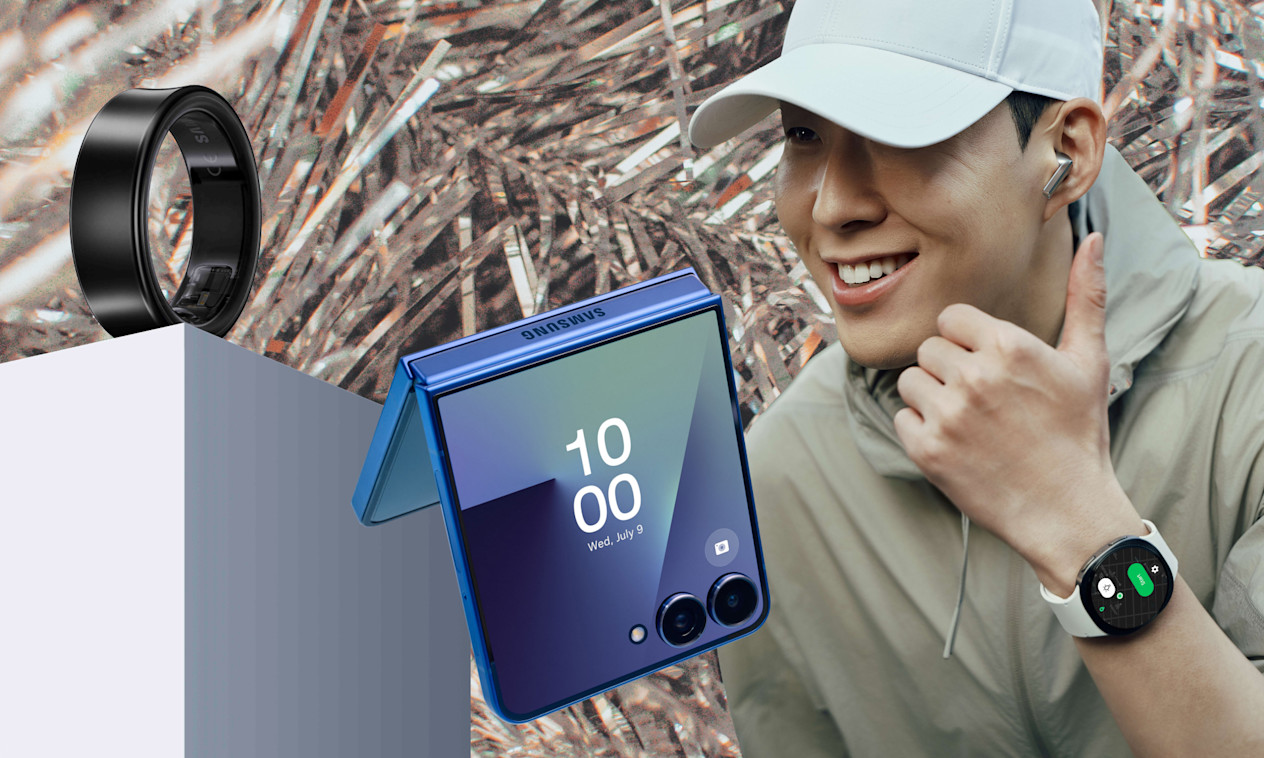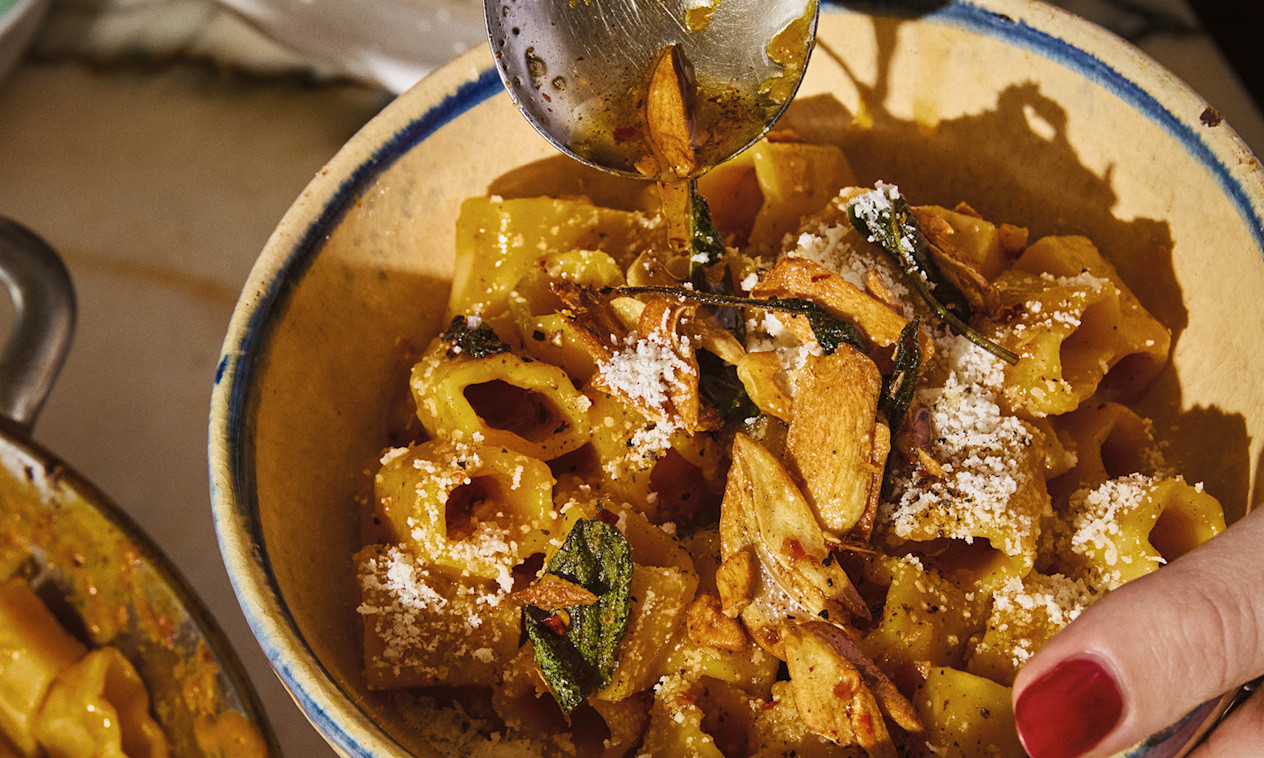It’s a new year, but your mental load is probably at the same level of 🤯. This week, we’re sharing tips and tricks to help you carry less and delegate more. Bring it on, 2024.
we have to talk about

The latest in parenting news, tips, and trends:
How dads not taking paternity leave can negatively impact the division of labor. Gentlemen, let’s be more like Bandit.
This couple’s decision to skip family dinners — it’s been a game-changer for their marriage. Less rushing, more quality time.
How 'mental load creep' is a thing, and media coverage like this doesn't help. We don't need silver linings.
Why this mom changed the way her family divides chores around the house. Enter: the "notice and do" system.
Affirmations your kids can say to help them be their best selves. Bonus: Empowered kids are more likely to listen.
ask an expert

Last week, we asked you to vote on a question to answer. The winner was:
How can I teach my kids to clean up after themselves?
FEATURED EXPERT:

Kids as young as 2 and 3 years old understand that there are tasks they have to do to take care of their bodies, home, pets, and toys. But they do need some adult help, says Parlakian.
Here’s what she says to do:
Make it a game: Say, “Let’s see how fast we can put all the stuffed animals in the basket.” Parlakian’s pro tip: Up the fun (and organization) by adding labels to drawers or bins with pictures of what belongs inside.
Be clear: What exactly do you want your kid to do? Be specific and say, “Put the blocks in the bin” — not “Can you clean up your blocks?”
Make it part of a routine: Try adding a daily cleanup to their routine before screen time (or another activity they like). This will make cleanup time a familiar and expected task.
Do it together: We all know toddlers have short attention spans. Cleaning with them can help keep their focus. “Singing, laughing, and enjoying one another makes this task a pleasure instead of a dread,” says Parlakian. Over time, you can phase yourself out while kids do more of the cleanup themselves.
self-help

Parent-centered advice, recs, and resources.
5 Red Flags That Your Family Is Overscheduled—and Likely Needs a Break
Being busy is a normal part of parenthood, but your calendar shouldn’t be running your family’s life. "Doing too much ... can [leave you] struggling to maintain a healthy balance [and] feeling overwhelming pressure to fulfill commitments,” says Amber Dee, LPC, a behavior therapist and CEO of Black Female Therapists.
Here are key signs to look for:
In parents:
Frequent forgetfulness: Aka you’re not getting enough mental rest. Multitasking can negatively impact memory, which makes the brain less efficient in storing and processing information.
Irritability: It’s a side effect of feeling constantly rushed, lacking flexibility, and having limited to no downtime. “Some examples are getting short-tempered with others, overreacting to minor inconveniences, or being impatient [more than usual],” says Dee.
Constant fatigue: “Physical and emotional exhaustion, cognitive overload, and lack of adequate nutrition can cause fatigue. This can increase vulnerability to illness, decreased motivation, and difficulty concentrating,” says Dee.
In kids:
Disrupted sleep is common when kids have too many extracurricular activities that lead to late nights or early mornings. Pay attention if your kid seems overwhelmed or has trouble calming down at bedtime.
Frustration may arise when a child is having a hard time managing their time. Excessive commitments can lead to burnout. (It’s not just an adult thing.) “Plus, not having control or struggling to meet expectations from parents can increase irritability,” says Dee.
If these sound familiar, it’s time to reassess your family’s priorities and schedule. Remember: “You want your kids to have an age-appropriate schedule that allows for relaxation, free time, and adequate sleep,” says Dee. Here’s what a healthy balance can look like.
the resource

The 3 Best Calendar Apps for Busy Families
These free apps will help you schedule, organize, sync, and get your family on the same page. One is specifically designed to use with your kids. Because sharing (the mental load) is caring.
Cozi helps you track activities — school events, practice schedules, dentist appointments, vacations — in one shared place. You can also share grocery lists, to-dos, and recipes.
OurHome is a kid-friendly app that allows you to assign and schedule tasks and chores, view progress and activities, and send messages to your kids. There’s also a rewards system linked to the family calendar to help motivate little ones to get their tasks done.
TimeTree makes it easy to coordinate and share calendars. You can use color codes to distinguish between family members’ events and add shared to-do lists. If you create a new event or make changes, the app will notify others. You won’t have to hear, “You never told me that” again.
Subscribe to Skimm Parenting
Quick, trustworthy, and relatable parenting info — for parents, by parents. We tap experts to break down difficult parenting dilemmas, recommend products that work, and clue you in on big trends. Raising small humans can be hard. We make it a little easier.






